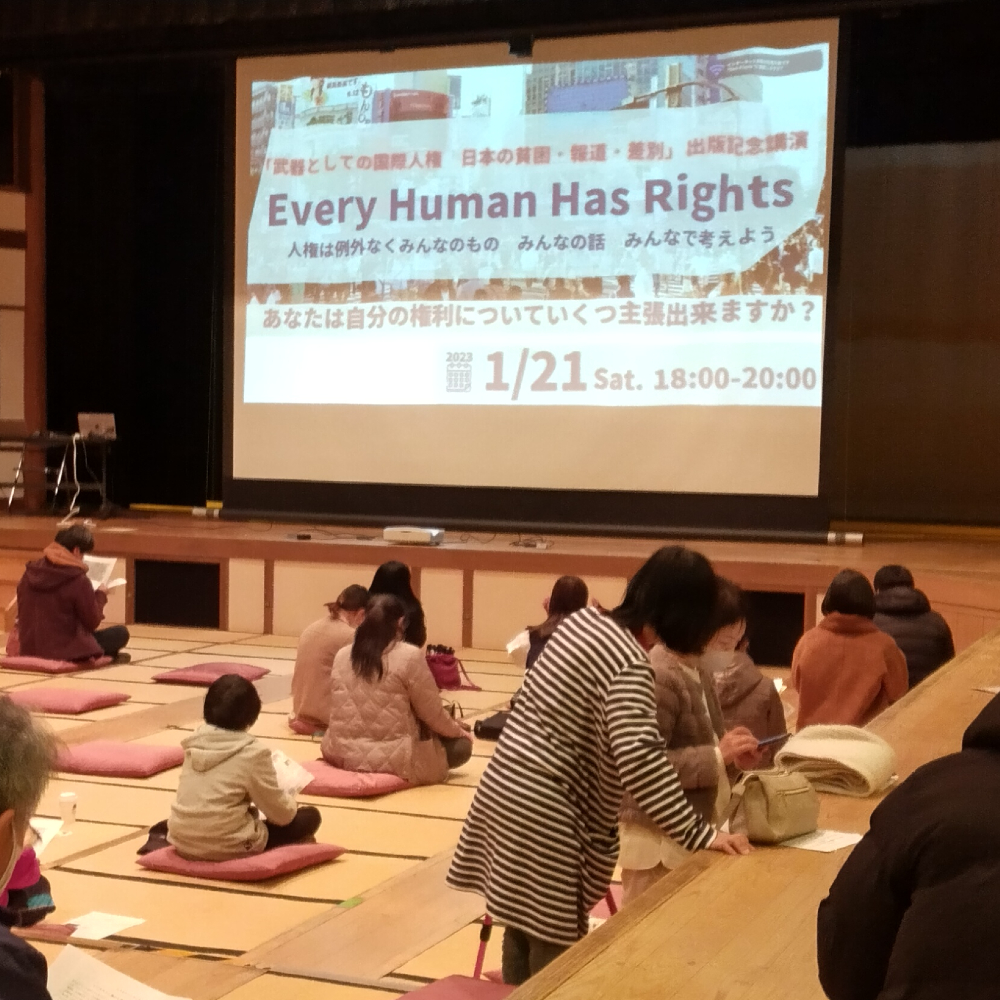As part of a new series, Sanae Fujita, a Visiting Fellow of Essex Law School, has been recounting her work on educating her native country of Japan about human rights and exposing abuses in a country that rarely falls under the microscope
In Japan, only about 1.3% of lawyers who pass the bar exam choose public international law in the exam.
It is extremely rare for lawyers and judges to make use of international human rights law in court, as they enter the judiciary without having studied it almost at all.
Such problems have been repeatedly recommended for improvement by the UN Committee on the Civil and Political Rights and other bodies.
So-called 'human rights lawyers' also only know domestic law.
Nevertheless, it appears that the number of Japanese lawyers who think that international human rights law could be used in court is gradually increasing as a result of my book on human rights.
Preparation of MOU with Japan Federation of Bar Associations
More than a decade ago, I approached the Japan Federation of Bar Associations (JFBA) with the hope that more lawyers (barristers and solicitors) would study international human rights law and use it.
And together with the then Director of the Human Rights Centre at the University of Essex, I was involved in the preparation of an agreement (MOU) between the Centre and the JFBA.
The MOU was then established so that two lawyers - one as a research fellow and one as an LLM student - could study international human rights law at Essex every year from 2012.
Ten years have already passed and more than a dozen lawyers have completed their studies in Essex.
One of them and I worked together as a team when we sent a communication on draft amendment of the Immigration Act to the UN Special Procedures in 2021 and 2023.
I set up an online study group to connect these lawyers and enable them to cooperate in human rights activities in Japan.
We share our experiences in Geneva and regularly exchange ideas on how we can use international human rights law and the UN human rights system to address specific issues that we are working on.
Although this is still a small group, I believe that it has the potential to influence the field of human rights activities in Japan from international human rights in the future.
The Essex Mafia
In addition, the number of Japanese graduates who studied human rights in Essex has also increased.
They don't know each other, so to deepen the connection, I created a Facebook group for alumni with whom I am in contact, which has more than 50 members.
The human rights course at the University of Essex is a very special place of 'human rights indulgence'.
But away from there, graduates can easily feel lonely, especially when they return to a country like Japan where human rights are not as entrenched in society.
That's why I think it is valuable to have a platform where you can meet other people who have the same study abroad experience and can speak the 'same language'.
During my stay in Japan, I have been calling on alumni to join me for meals in Tokyo and other places, and more than 10 people have participated each time.
As far as graduates are concerned, many of the UN staff in Geneva are Essex graduates, and they sometimes help me when I approach the UN human rights bodies regarding Japan.
At such times, I once again realise the power of the so-called 'Essex Mafia'.
Even a Fashion Magazine published my human rights interview
Since my return to the UK in March, I have received interview requests from a diverse range of media.
The main question asked is: "what are human rights?" which is a question that I have been asked by a variety of media.
People who request interviews with me say that they read my book and 'I found out about human rights for the first time' and 'I realised that the human rights I had been imprinted with weren't actually what they were supposed to be.'
It varies from The Big Issue Japan to a fashion magazine.
And they have published interviews with me explaining what human rights are.
I have already received several requests to speak at my next visit to Japan.
This includes not only organisations involved in human rights activities, but also medical professionals, welfare workers, medical student groups and local government boards of education.
And they want to know more about human rights because they 'hadn't thought about it' until they read my book.
Contextualize universal human rights in Japan
In the UK, there has been an 800-year history of human rights since the Magna Carta.
On the other hand, the term and concept of human rights has only been brought to Japan for at most 100 years. And for the reasons given above, it is neither fully understood nor firmly rooted.
The starting point and preconditions are completely different.
Furthermore, compared to East Asian countries that have won democratisation, such as South Korea and Taiwan, Japan lags behind in terms of human rights institutions and legislation.
You cannot give young toddlers chunks of steak or very spicy food that adults eat. Toddlers need food that is easy to eat and digest.
Similarly, ingenuity is needed to explain the concept of human rights, which is not yet firmly rooted in Japan, in a way that people can easily understand and accept.
I believe that Japan will change if the concept of universal human rights takes more root in society and international human rights are used by more people.
I hope that my activities, publications and awards will be a catalyst for more people to take an interest in the question - what are human rights?



